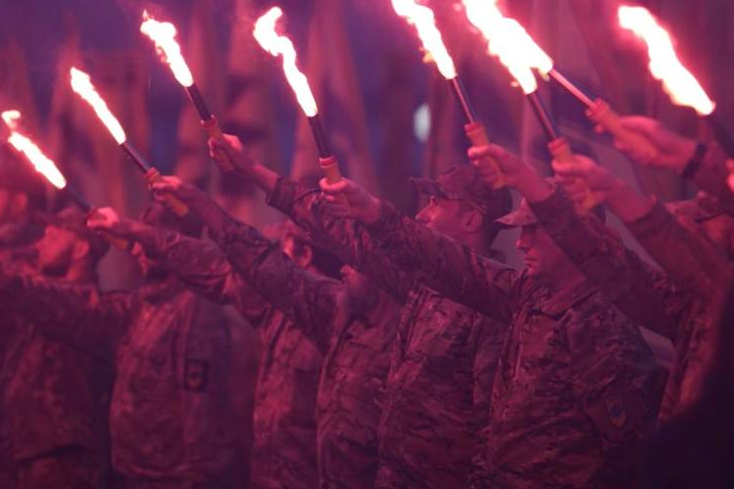Controversy Erupts After Nazi Veteran Honoured in Canadian Parliament
The Speaker of the House of Commons issued a formal apology Sunday following an incident involving the recognition and tribute paid to a former member of a Nazi military unit during the Second World War.
The incident took place Friday during the official visit of Ukraine's President Volodymyr Zelenskyy to Ottawa, marking his first visit since the Russia-Ukraine conflict erupted in February 2022.
Yaraslav Hunka, a 98-year-old Ukrainian-Canadian veteran, received a standing ovation in the Parliament after Speaker of the House of Commons, Anthony Rota, referred to him as a "hero."
“We have here in the chamber today a Ukrainian-Canadian veteran from the Second World War who fought for Ukrainian independence against the Russians and continues to support the troops today, even at his age of 98,” Rota said Friday, prompting an eruption of applause.
However, it quickly became apparent that Hunka had – to put it mildly – a controversial past.
He served in the 14th Waffen Grenadier Division of the SS, a Nazi unit that fought alongside Germany during World War II. This revelation led to outrage from several Jewish groups.
In a statement issued Sunday, Rota expressed his deep regret, saying, "I wish to make clear that no one, including fellow parliamentarians and the Ukrainian delegation, was aware of my intention or of my remarks before I delivered them. This initiative was entirely my own, the individual in question being from my riding and having been brought to my attention."
Rota added that he particularly wants to extend his deepest apologies to Jewish communities in Canada and around the world.
“I accept full responsibility for my actions,” Rota concluded.
The controversy unfolded the same day Canada announced an additional $650 million in funding over three years to supply Ukraine with armored vehicles. The ongoing flow of money has received both praise and criticism among Canadians, with critics of Western support for Ukraine often highlighting concerns about the presence of neo-Nazism in the country.
A common target among critics is the Azov Battalion.
Incorporated into the National Guard of Ukraine in 2014 to combat pro-Russian separatists in Eastern Europe, the Battalion has faced accusations of having ties to neo-Nazism. These concerns, however, have been consistently dismissed by Canadian officials as Russian propaganda.
Courtesy Polk_Azov/Twitter
Addressing the Hunka debacle Monday, Prime Minister Justin Trudeau reiterated the importance of countering perceived Russian propaganda.
Trudeau began by telling reporters that the incident was “deeply embarrassing,” noting that the speaker had “acknowledged his mistake.” Quickly pivoting, the Prime Minister then proceeded to call on Canadians to “push back against Russian propaganda and Russian disinformation and continue our steadfast, unequivocal support for Ukraine.”
Trudeau’s comments left many wondering what a former Nazi being honored in Canadian parliament has to do with Russian propaganda.
Canada has provided Ukraine with nearly $9 billion so far. Officials say the funding will continue for "as long as it takes."



